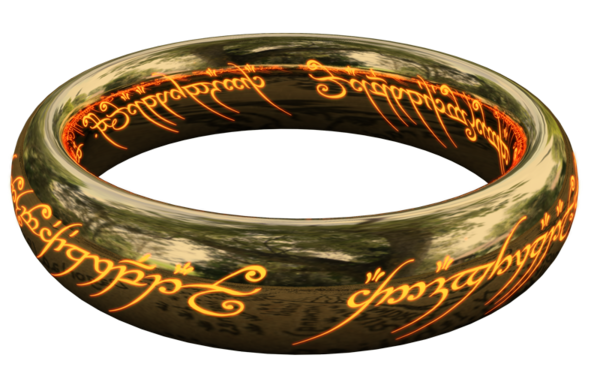The days had been darkening for quite some in the lands near Mordor. Some had attributed it to Mount Doom becoming increasingly agitated, seemingly on the brink of an eruption. Still others blamed the Deceiver, as every inn from the Blue Mountains to the Mirkwood held stories whispered with great care taken not to be overheard by the passing trader or shrouded Ranger. These whispers carried with them the chilling news of a dark entity rising in the far west. Everyone had noticed the shapes moving through the trees at night, or heard of the villages razed overnight with no survivors to relay a warning to the outside world.
It was in these times that a creature older than the first men found a home in Torech Ungol, a winding, twisting cave in the pass of Cirith Ungol. The creature’s name was Anansi. He had eight wretched legs connected to an abdomen covered in silvery gray hair. Numerous eyes kept watch of everything that happened in the cave, and a pair of fangs longer than most daggers lay in wait to sink into the flesh of anyone who came into the lair.
The orcs in nearby Mordor often played a game. In the fashion befitting an orc, the game was less about fun than it was cruelty. As much as orcs love inflicting pain on others, they also relish the feeling of receiving it, mostly because it removes them from their piteous world for a split second. When the game started they would begin giving their opponent superficial cuts, taking great care to not slip and slice too deeply. This would continue until either one of the contestants lost consciousness from loss of blood. The loser would then have the wounds received cauterized and be taken to the steps of Torech Ungol. It was in Anansi's nature to be particularly greedy, oftentimes ensaring a bearer of the loser as well. The creature loved to play with its food, however, and a silky smooth voice emanated from somewhere in the dark mandible coaxing the orcs to play a game of life or death. Anansi promised that if at least one orc could find a way to the pool of water in the very center of his lair, both would be free to leave. He would also give his word that he would not attack the orcs until he had solved a riddle given to him by the orc. Now, most orcs were well known to be exceedingly dim-witted, but in this particular case the loser happened to be an older guard in the torture chamber, and he had heard one prisoner consoling himself time and time again with one riddle. It read:
I come like a thief in the night.
I take everything, but at the same time nothing.
You know me, and sometimes even welcome me at your bed.
I am at once a gateway and a wall.
What am I?
Anansi had never gotten a riddle so eloquent from an orc. Often it was a nasty curse or a crude laugh he received. The orcs stumbled through the darkness for a good while as Anansi mulled the riddle over. The older orc heard the splash of a water droplet into a larger body and began heading towards it. Just as he reached the edge of the pool there he heard the clicking of fangs, and a whisper. Death.
Author's note:
I love The Lord of the Rings, so whenever I got the chance to write about a spider I compared Anansi to Shelob, a large dangerous spider that guards a passageway into Mordor. For those who don't know, Mordor is the home of the main antagonist of the trilogy. Anansi is a spider from many West African folktales. He is a known trickster who regularly uses his smarts to get things that he wants from others. I tried to incorporate some of the cunning which Anansi shows in folktales such as Anansi and Nothing. In the story, he convinces a rich man that lives nearby that it would be fun to trade clothes while they go into town and find wives. Anansi tricks women into believing that he is the rich one while the other man struggles to find a suitable wife. Finally, they return to their respective homes with wives, and all is made clear. By adding a chilling characteristic in which Anansi plays with his food a la the riddle game, I incorporate some of Anansi into the cold-blooded killing machine of Shelob in the LoTR setting. I have included a link to the Wikipedia page for Shelob in case anyone reading is interested in learning more about her. She is one of the creepiest things the protagonists face in the books, and also one of my favorite parts of the movies.
Partially inspired by
Anansi and Nothing in West African Folktales by William H. Barker and Cecilia Sinclair.
Setting inspired by the book
The Two Towers by J.R.R. Tolkein--
Shelob

.jpg)


